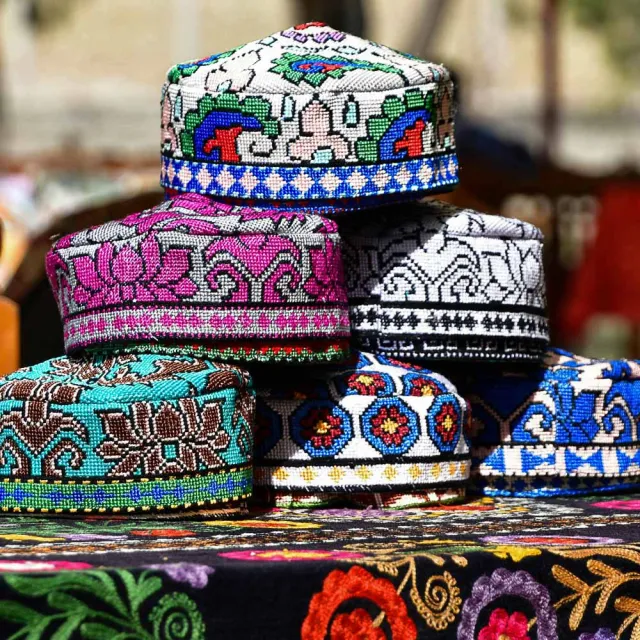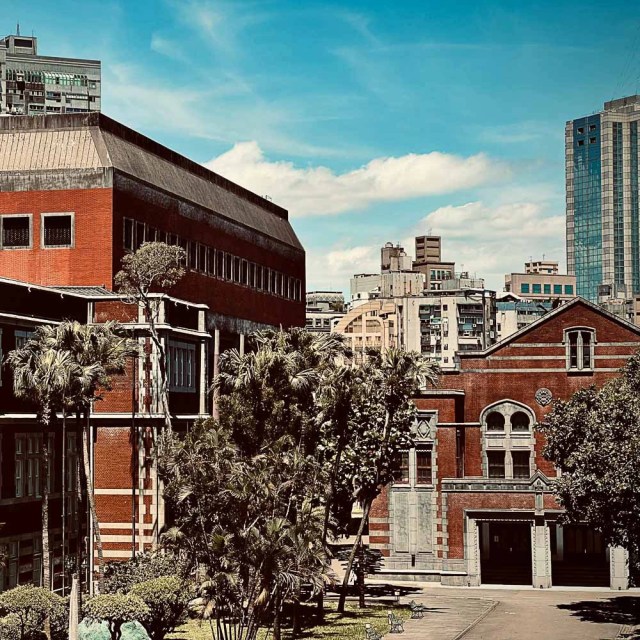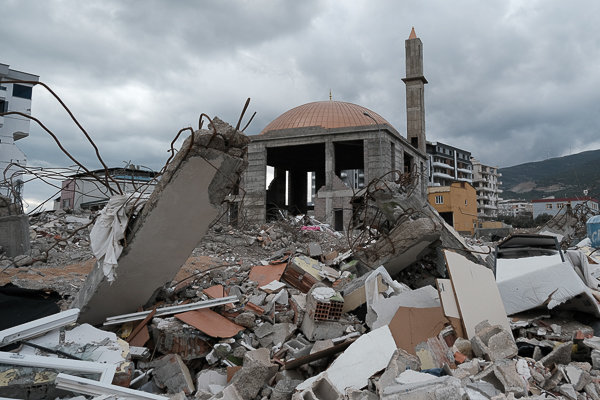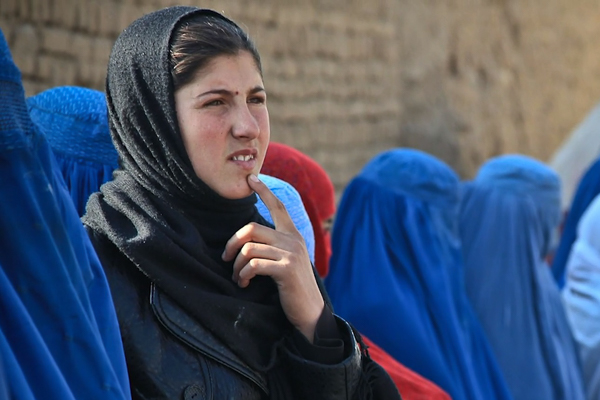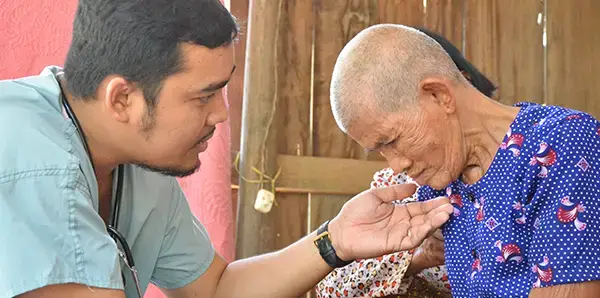How Business as Mission Is Shaping the Church in Central Asia

To many, Lance Aldrin* is a businessman. He runs a number of small companies throughout the Central Asian country he now calls home—employing locals, generating revenue, and living a lifestyle that matches his vocation.
But Lance is something more as well—a key part of his identity that he keeps hidden from the unfriendly, watchful eye of the government. Lance is an MTW missionary, using Business as Mission (BAM) as his platform for reaching and impacting his community.
Lance’s journey toward BAM began years ago. After coming to faith in high school and graduating from Covenant College, he and his wife moved to Central Asia to live out their faith in an intentional and creative way.
“I was young and I thought: ‘I can work anywhere in the world, so why don’t I go somewhere other people aren’t going?” Lance said.
Lance and his wife got jobs teaching English at a local university. In exchange, they were given an apartment, $100 a month each, and a chance to engage a culture and community in need of the love of Christ.
“We thoroughly enjoyed that year,” said Lance. “We saw how having a job like that created community, created an identity for us for living in the culture and being part of it. And so, since then, everywhere we’ve gone to live and work, we’ve sought to have that kind of local identity.”
In the years since, the Aldrins have played many different roles in Central Asia, from working with humanitarian organizations to businesses. But consistently their identities in the community are clear, understandable, and match their lifestyle. To local Christian leaders—many of whom have to be bi-vocational themselves in order to do ministry sustainably—it makes sense and creates empathy.
“It is difficult,” Lance admitted. “There are days when I wish I didn’t have to do anything other than teach and study and pray, but we’re helping people identify and use their gifts and follow Jesus in the process. And we’ve come to understand that that’s discipleship—seeking to equip the Church to do the work of ministry… That helps guide and direct the work that we’re doing.”
Why BAM?
But why BAM? Why not just good old fashioned church planting and traditional missions work? According to Lance, there are four primary reasons why BAM makes sense in his particular context in the Muslim world.
- To obtain residency. In many countries in the Muslim world it is not possible to get a missionary or humanitarian visa, the methods of entry for missionaries in many countries. A student visa can work for a few years, but isn’t a good long-term option. Setting up a company allows missionaries to obtain a business visa and legitimately live and work in their target country long-term.
- To legalize activities. “The governments that we work under don’t necessarily like all that we do,” said Lance. “But if we work through a legal [business or non-profit], it gives us more freedom to do the projects that we want to do because it’s in the open, we get the right permissions, and we pay taxes.”
- To provide employment. Creating businesses can create jobs for local believers and help mobilize people in local churches to do what God has gifted and equipped them to do.
- To create income and sustainability. Legitimate businesses provide real products or services and can generate income to help support the project and sometimes even make the ministry self-sustainable.
Putting it into practice
For these reasons, and ultimately to facilitate and support the spread of the gospel, Lance operates a number different BAM enterprises in his Central Asian home. One of these, a profitable store that promotes and sells local handicrafts, has earned the respect of its countrywide network of artisans, and made a name for itself as a fair business that seeks to benefit the producers rather than profit alone.
“They have seen time and time again the difference between our store and other stores that take advantage of them,” said Lance. “The storefront is run entirely by local believers. [The business] gives them jobs, a witness in the city and the artist community, and the freedom to travel to remote, un-churched areas of the country where the handicraft producers live.”
Another of the projects is a business development and microfinance company that consults with believers in rural areas, helps them identify their gifts, and provides small loans for such projects as purchasing cows, beehives, and greenhouses.
“Many [believers in rural areas] can’t find employment, so they end up leaving their community where there are few believers and moving to the capital,” said Lance. “This is an effort to help keep believers out in the rural areas, to support them as they seek to start small businesses so they can continue to be a light where they are living.”
Other companies in Lance’s domain include a language and culture training center, which Lance hopes will eventually (though not explicitly) be able to facilitate theological education and biblical training, and a grant-funded non-profit that provides counseling and support for families of children with disabilities.
Though this array of BAM enterprises is incredibly diverse, in all cases they pursue multiple bottom lines: prioritizing not only profits and growth, but also the value of people, practical aspects to get and keep missionaries in country, and opportunities to share the gospel. Here, far from being something in addition or opposition to the gospel, business—legitimate, ethical, business—is a necessarily and extremely helpful channel through which the church is able to reach the culture.
Being a light as a non-traditional missionary
“Quite honestly, I didn’t get into this type of work with a clear understanding of what it means to be a missionary,” said Lance. “I just wanted to be a Christian in a place where there were no Christians, to live my life in that place and be a witness and a light.”
“We need to mobilize the global Church to reach areas where the Church is particularly small,” he added, “people with all types of gifts and skills and knowledge and abilities. It’s not just the teacher-pastor types or the evangelists [that are needed on the mission field]. If you’re only mobilizing those types of people, there’s only a certain type of fish you’re going to catch, so to speak. Whereas, if you take more of a shotgun approach and build a team with multiple gifts and skills, then your process of building the Church is much more multi-faceted. That way, you end up reaching a much wider demographic and in the future you’ll have a much more sustainable Church.”
Far too often, we put “missionary” in a narrow vocational box. Missionaries are pastors, teachers, and evangelists, with the occasional doctor and nurse thrown in for good measure, right? But the reality is, the Great Commission applies to us all, and God’s grace is such that he is able to use our diverse gifts, skills, and knowledge for His purposes. Linguists, designers, economists, lawyers, builders, artists, accountants, bakers, and, yes, businesspeople can all live their lives in an international context in intentional pursuit of the kingdom of God.
This is what we mean by “Business as Mission.” Business is not (or ought not to be) a disguise or a necessary evil that enables the real work of the gospel. Done well, business can be a means to enable believers to discover their gifts, follow Jesus, and live out their callings, a means to discipleship, and a conduit for reaching and transforming communities with the love and hope of Christ.
*Name has been changed for security reasons.
Learn more about how you can serve with MTW’s Business as Mission at mtw.org/bam.

